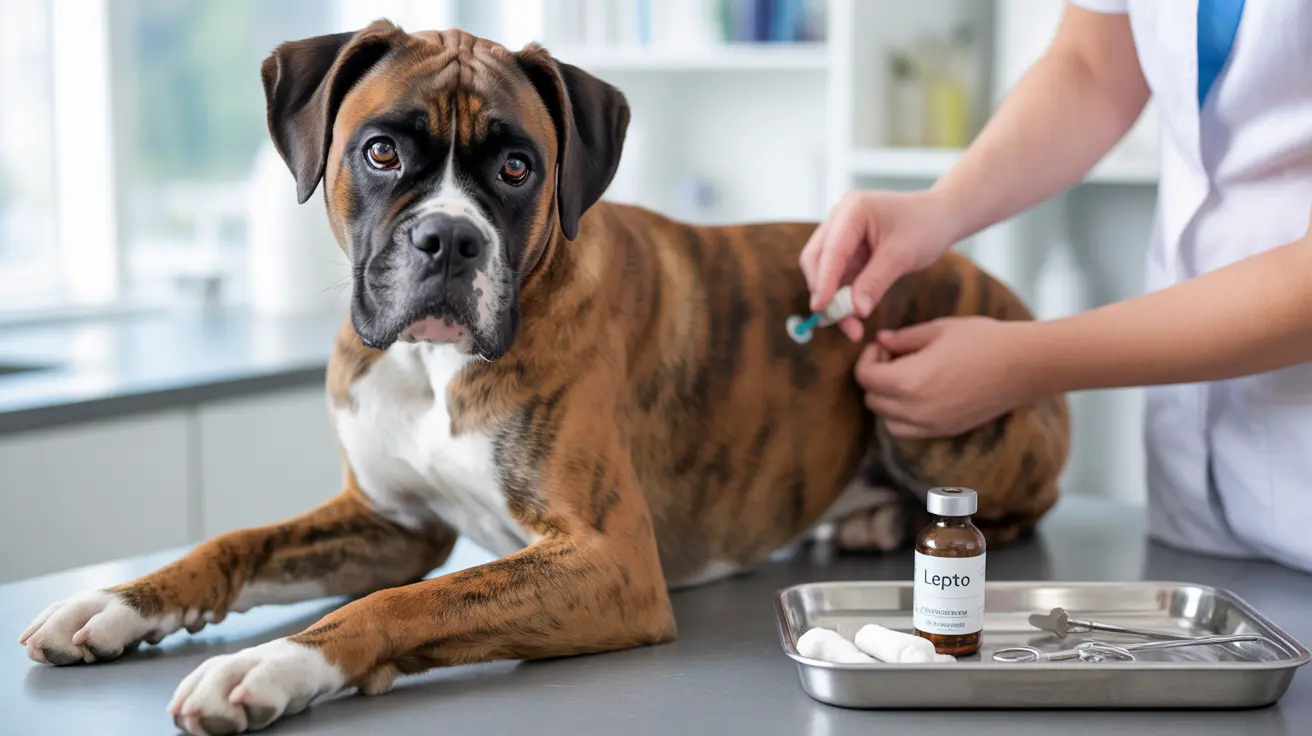As a responsible dog owner, understanding the importance of the lepto vaccine for dogs is crucial for protecting your pet's health. Leptospirosis, a potentially fatal bacterial disease, has become increasingly common in both urban and rural environments, making vaccination more important than ever.
In this comprehensive guide, we'll explore everything you need to know about the lepto vaccine, from its effectiveness to vaccination schedules, helping you make an informed decision about your dog's health protection.
Understanding Leptospirosis and Its Risks
Leptospirosis is a bacterial infection that can severely impact your dog's health, potentially leading to kidney failure, liver damage, and even death if left untreated. The disease spreads through contact with infected urine, contaminated water, or soil, making it a risk for both outdoor and urban dogs.
Recent studies show that urban dogs face increasing exposure risks due to growing populations of wildlife carriers like raccoons and rats in city environments. This has led to a shift in how veterinarians approach vaccination recommendations.
Effectiveness of the Lepto Vaccine for Dogs
Modern lepto vaccines provide impressive protection rates, with clinical studies showing approximately 84% effectiveness against disease development and 88% protection against infection. This high efficacy rate makes the vaccine a valuable tool in preventing this serious illness.
The vaccine works by stimulating your dog's immune system to produce antibodies against the Leptospira bacteria, without causing the actual disease. This provides robust protection that can last up to a year.
Vaccination Schedule and Administration
The lepto vaccine requires an initial series of two shots, administered 3-4 weeks apart. Following this initial series, annual boosters are necessary to maintain protection. Most veterinary clinics offer the vaccine either as a standalone shot or as part of a combination vaccine.
The cost typically ranges from $30 to $50 per dose, making it an affordable investment in your dog's health compared to the potential costs of treating leptospirosis.
Risk Factors and Who Should Vaccinate
While all dogs can benefit from the lepto vaccine, certain lifestyle factors may increase the importance of vaccination. Dogs who frequently visit dog parks, swim in natural water sources, or live in areas with high wildlife activity face elevated risks.
Even indoor dogs can benefit from vaccination, as urban rodents can bring the bacteria into yards and homes. The vaccine's safety profile and the potentially severe consequences of infection make it a recommended choice for most dogs.
Safety and Side Effects
Today's lepto vaccines are highly refined and have an excellent safety profile. While mild reactions such as temporary soreness at the injection site or slight lethargy can occur, serious adverse effects are extremely rare.
The benefits of protection against this potentially fatal disease far outweigh the minimal risks associated with vaccination.
Frequently Asked Questions
How does the lepto vaccine for dogs protect against leptospirosis, and is it effective?
The lepto vaccine works by introducing inactivated bacteria to stimulate your dog's immune system, creating protective antibodies. With an 84-88% effectiveness rate, it provides strong protection against infection and disease development.
What are the side effects of the lepto vaccine, and are they common in dogs?
Most dogs experience minimal to no side effects. Common mild reactions might include temporary soreness at the injection site or mild lethargy. Serious adverse reactions are extremely rare.
Can indoor dogs benefit from the lepto vaccine, or is it only for outdoor dogs?
Indoor dogs can benefit from vaccination as leptospirosis can be transmitted through contact with infected rodents that may enter homes or yards. Urban environments pose increasing risks due to wildlife presence.
How often should I vaccinate my dog against leptospirosis, and why is annual vaccination important?
After the initial two-shot series, annual boosters are necessary because immunity typically wanes after 12 months. Regular vaccination ensures continuous protection against this serious disease.
Can the lepto vaccine completely eliminate the risk of leptospirosis in dogs, or are there other precautions I should take?
While the vaccine provides excellent protection, it's important to also avoid high-risk situations like allowing dogs to drink from standing water sources and maintaining good rodent control around your property.
Conclusion
The lepto vaccine for dogs represents a crucial tool in protecting your pet against a potentially deadly disease. With its high effectiveness rate, strong safety profile, and the increasing prevalence of leptospirosis in both urban and rural environments, vaccination is recommended for most dogs. Consult with your veterinarian to establish the right vaccination schedule for your pet's specific needs.






